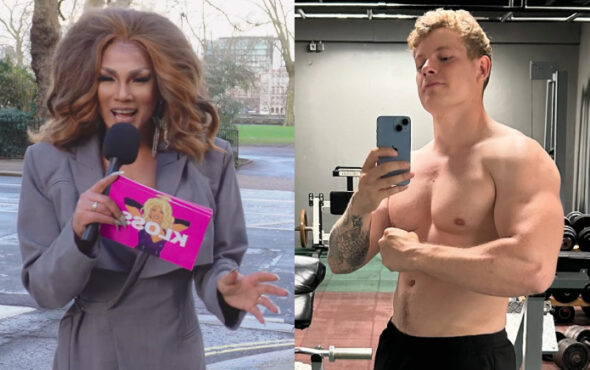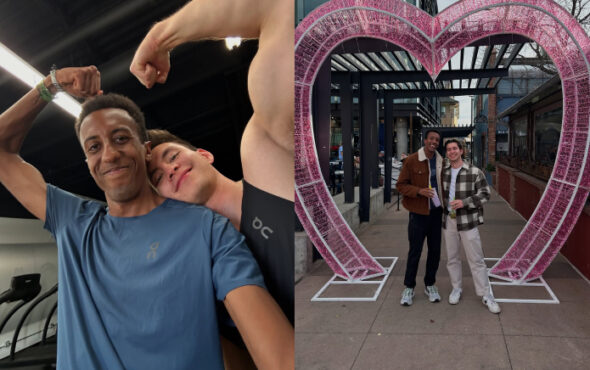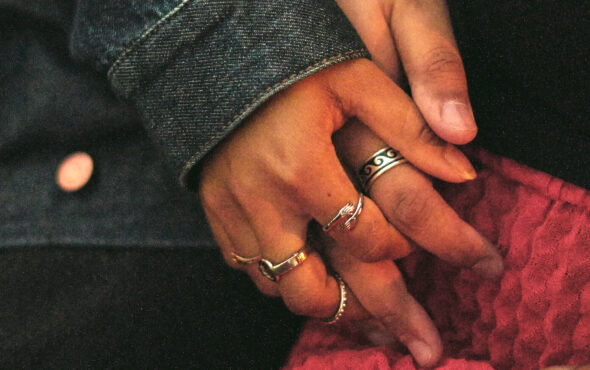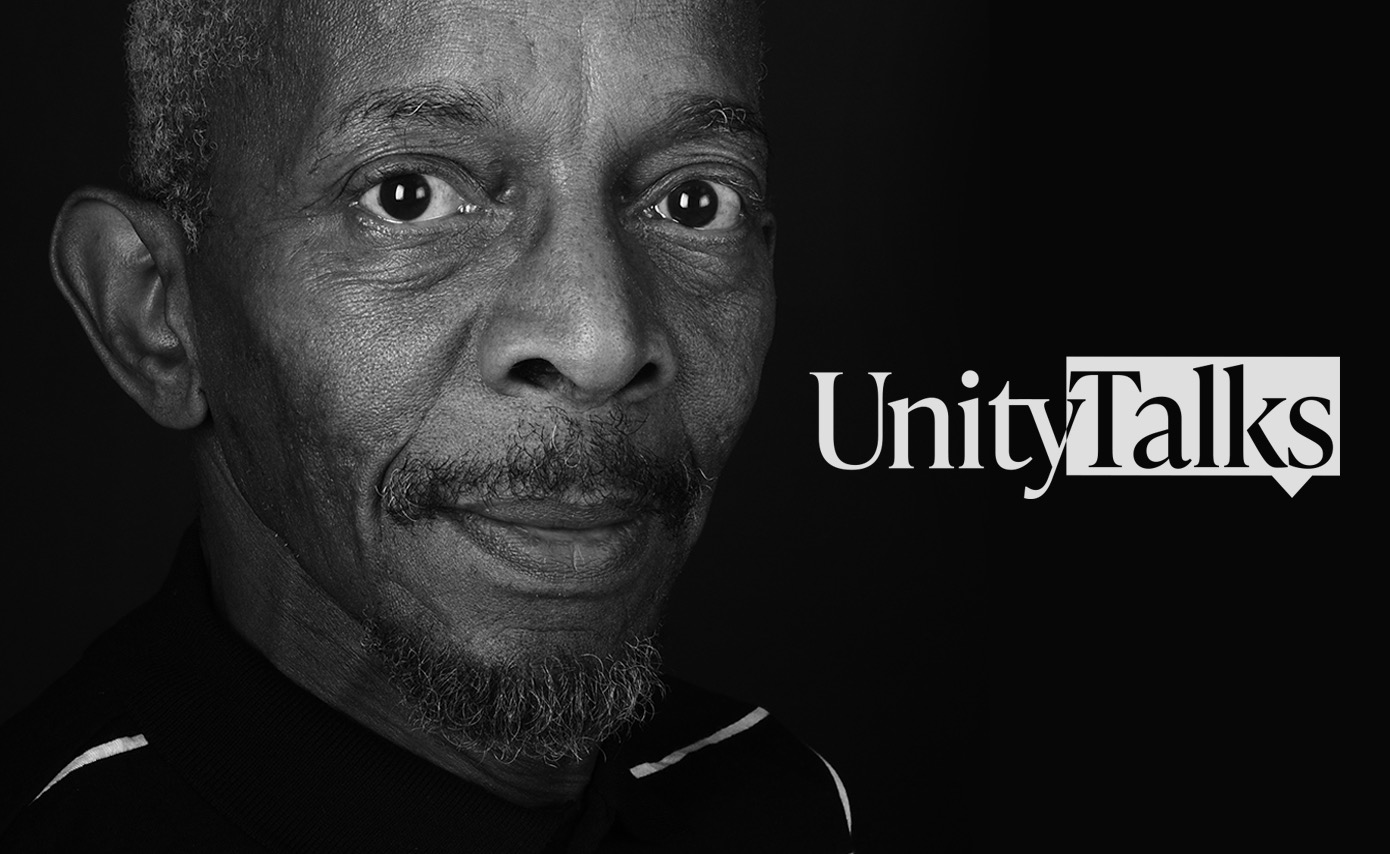
Welcome to Unity Talks, a new series I’ve created exclusively for GAY TIMES. The idea came to me because with so much information and misinformation online, designed to separate us and divide opinion, I wanted to create a space that brings us together and enables us to learn and grow together. We’re not born knowing everything, we’re constantly learning and yes, sometimes we fuck up. Hence, Unity Talks will be tackling the big topics and providing inspiration and points for us to all connect on.
To kick off our very first Unity Talks this Black History Month, I spoke with Teddy Brown, one of the founding members of the Gay Liberation Front in the UK and forefathers of our movement for LGBTQ+ rights. I learned so much by listening to him talk about his life, growing up in the civil rights movement and then becoming a leader in the gay rights movement. We don’t often get to hear from our queer elders and, as an activist myself, I was keen to listen and learn.
Here are some of the parts of our conversation that I think were the most fascinating.
What were your experiences of the civil rights movement growing up?
My mother, when in America, had got involved with the NAACP (National Association for the Advancement of Colored People) along with my white Jewish stepfather. One of my earliest memories was of travelling south on a Greyhound bus and they got off the bus and forgot where they were and were holding hands and got beaten up severely. I had to be put in a children’s home for a couple of weeks when I was six or seven while they recovered. As a result of her involvement in the civil rights movement and not being an American citizen, she was deported to Jamaica. It was a country she had left because she couldn’t stand some of the attitudes towards women. She described to me – and I experienced it myself – her anger when people in Jamaica described England as the ‘mother country’. What mothers inflict slavery on their children?! [laughs]
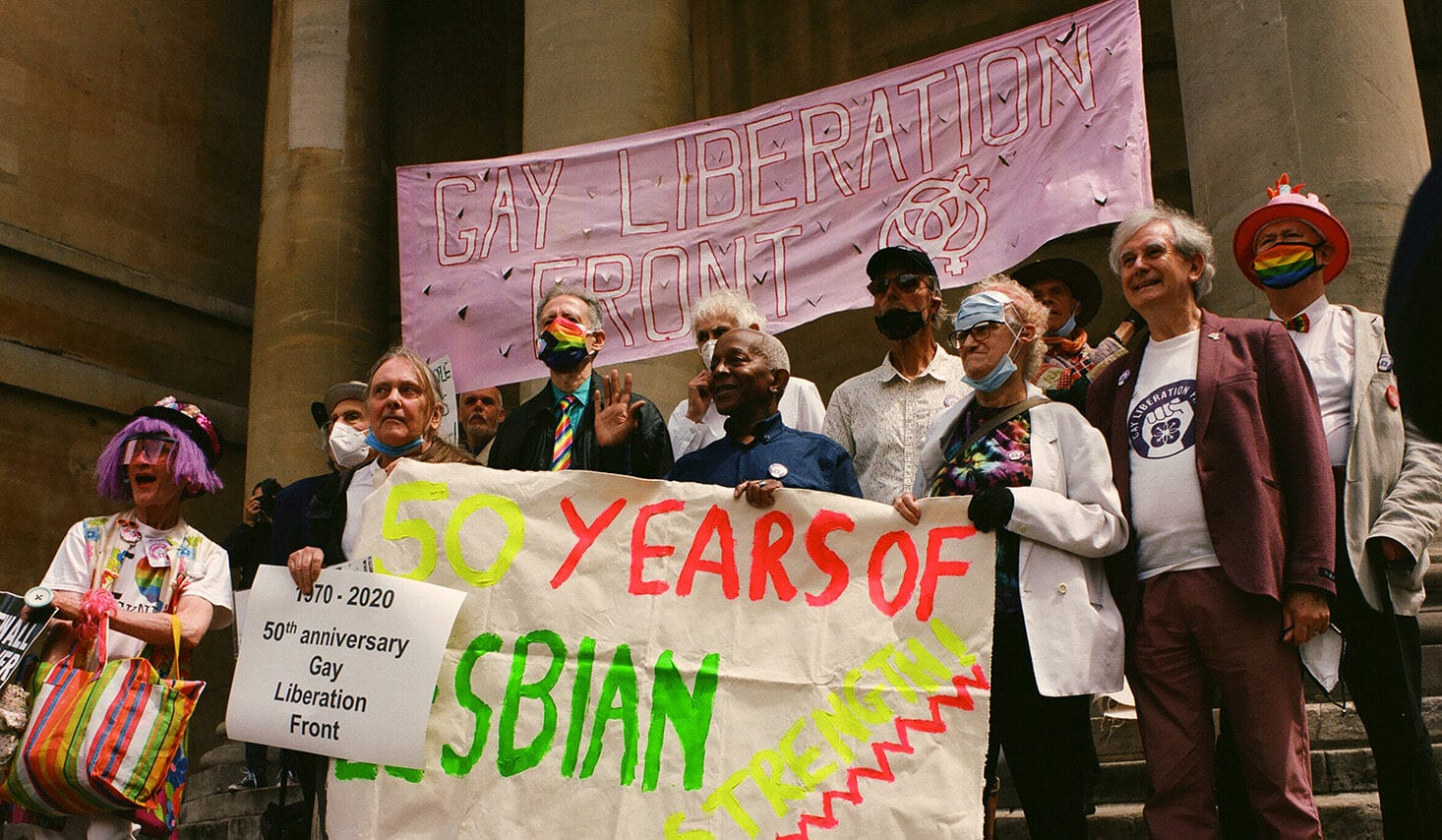
When did you become aware of your sexuality?
When I was 11 years old I became aware of my attraction to other boys, but my mother and I both agreed it could just be a phase as it’s quite common at that age. At 15 I told her again, she cried on my shoulders, I cried on her shoulders and she said you’re going to have to deal with racism and the hostility people have towards homosexuality. Now, I told her for two reasons, one I knew she loved me and would never reject me while my behaviour wasn’t malicious or evil in any way. But I knew she’d been involved in the NAACP and heard speeches from Bayard Rustin. He said “one day gay people will be fighting for their rights in the same way as black people were fighting for theirs.” He was also the organiser on The Great March on Washington where Martin Luther King gave his famous “I have a Dream” speech. J Edgar Hoover tried to fabricate a relationship between King and Rustin in order to undermine the movement. So although he turned up, he was bundled up and moved away and he knew this association would have been detrimental. This was five years before Stonewall. I’m only myself finding out in the last 15 years how significant a part he played in Black Civil Rights and gay rights. He was openly gay and had been arrested in 1953.
How did you feel about your sexuality?
I came out when I was 15. I didn’t know any other gay people except two boys at my school who, like me, considered suicide. To me, at that age in 1966 the future for me looked a disaster. How was I going to meet someone? Have a relationship? Being a homosexual, because we weren’t using the word ‘gay’ then, yeah I knew I’d be subject to being arrested. My mother died a few months after I told her due to previous health complications. I then moved into a children’s home with my younger brother and sister. I told the psychiatrist that I thought I was becoming a homosexual, after I’d sussed him out of course. There was a serious risk of conversion therapy, but he felt understanding so I talked to him. His attitude was the same as my mother’s, “you’re going to have to deal with this”. I was 16 and the two other guys at school that I thought were homosexual had committed suicide. I had thought about it, but it wasn’t ‘oh woe me’, it was for the reasons Black slaves jumped overboard. They weren’t jumping overboard because they felt bad about being Black. They jumped overboard because they didn’t want to face up to a life of what was going to happen to them. And that’s how I felt. So I managed to not do it partly because I wanted to keep an eye on my younger brother and sister who were still in care. I also wanted to find another sister who had been sent to the States.
I’m only myself finding out in the last 15 years how significant a part Bayard Rustin played in Black Civil Rights and gay rights.
What support did you have?
We were living in Blackheath. We were fostered by this school teacher who quite liked us. The three years I was with them, we didn’t have any association with black people, not in Blackheath back then, the Hampstead of the South! I moved out into a place on my own. In 1969 while reading a newspaper, I came across a flippant article talking about fairies with their handbags who were fighting the police. This was Stonewall. I did cartwheels around the place! But I had no idea it was going to be as significant as it was.
In the library I was looking up homosexuality and I couldn’t talk to anyone other than my mum. It’s a “perverse attraction” in the Oxford English dictionary at that point. Stonewall was belittled by this article. Then I hear about The Boys in the Band by Mark Crowley. Everyone should see it. First ever Hollywood movie where the lead characters were gay. Gay men! A few months before I’d seen Victim. Dirk Bogarde in a courageous and positive role, standing up for the young man who killed himself. So, Odeon Leicester Square I saw the film and it countered some of the stereotypes. They looked straight, weren’t camp. It also had a black character and addressed the racism they faced, and they were treated with more respect than in other Hollywood films of the time. The real problem with the film is it puts all the blame that homosexual men have on their own self-hatred. Two quotes from the film are “Show me a happy homosexual and I’ll show you a gay corpse” and “If only we didn’t hate ourselves so much!” So I was mixed about it, but knew this was Hollywood and knew their portrayal of black people was inaccurate so it must be the same for homosexuals too.
On leaving the cinema, people outside were leafleting against the film. There’s no mention of laws in the film, just that we hate ourselves. The leaflets were from the newly-formed Gay Liberation Front. So I went to the next meeting a few days later. This was the first place I ever met or saw other lesbians and gay men. And a large crowd of them. And they weren’t hiding or scared. They were angry at how they were being treated. Then it went on from there.
What I have to remind people is that whatever we want, we have to keep fighting as LGBTQ+ people.
Do you feel like there would have been a gay rights movement without the civil rights movement?
No. There’s a video from 1964. In New York City homosexual men were deemed unruly and you couldn’t serve drinks to unruly people. So gays started going to bars and demanding to be served. And it is said that that had been learned from Black people who were going to stores during segregation and demanding to be served. They’d seen this on TV.
Secondly, the British arm of the GLF formed within days during the Stonewall uprising, which lasted for three or four days. The lead police officer actually said “I’ve been to Vietnam and this was scarier”. People were angry! Throwing matches in through the window when the police locked them in. A lesbian got arrested and yelled “why don’t you do something” and then trans people got involved, led by Marsha P Johnson. This was a few months after the anniversary of the murder of Martin Luther King, and some of the Black queens wanted to have a memorial in 1969 to mark a year. They were told they weren’t allowed as an ‘unruly mob’ so they were angry already.
Huey P Newton, who was the co-founder and Commander of the Black Panther Party, wrote a letter to lesbians and gays. He wrote to fellow Black Panthers saying that you may have hang-ups about homosexuality, but lesbian and gay people may be just as, or even more, revolutionary than we are because of the crap that they’re having to deal with. He then invited people to the Revolutionary People’s Congress in Philadelphia a few months after Stonewall. Bob Mellors and Aubrey Walter, who were students at the LSE in London who had been around during the uprising and seen what was happening, had received the letter and went to the convention and picked up a lot of ideas about how to fight prejudice and racism. We’re planning to recreate this later this year at the Bishopsgate Institute in London. This is to make the point that the LGBTQ+ rights movement owes a debt to the Black civil rights movement.
What’s important to you now?
What I have to remind people is that whatever we want, we have to keep fighting as LGBTQ+ people. Just like the civil rights movement. Just like Black Lives Matter. Any right can be taken away. Laws can be changed again.
